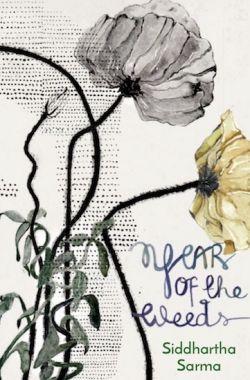
PRIVILEGE is a many splendoured thing. For those on the inside, it is a floating cloud that needs to keep its shape at all times, careful about other similar clouds it might meet in the sky, careful about what to let in and what to keep out. For those on the outside, whose feet are so much more in touch with the earth, its soil, it is as inaccessible and distant as a cloud is to the earth. Except, when that rare beam of light splits a cloud and rushes to meet the earth.
To me, Year of the Weeds was that beam of light as Siddhartha Sarma juggles these twin worlds of privilege and non-privilege, of quietness and noise, of politics and gardening, of hope and destiny, of ordinary power and extraordinary lives.
The book immediately draws you in, with Korok waiting for the bus that would eventually come, because, already, in page one, we know time as we understand it is immaterial in Korok’s world. Here time is like that back-seat driver – no matter how hard it tries, it cannot steer the day. So we learn about Korok’s life at a pace that defines Korok’s world – not slow or fast, not as one spectacle after another – but just as seamlessly as breathing. We learn his father is in jail for a crime he did not commit, that his mother lives six feet beneath the ground in the sacred Devi Hills, that Korok has a goat without a name that lives under his bed, and that Korok is an exceptional gardener, nurturing rare medicinal plants and flowers in the Divisional Forest
Officer’s garden.
Then we meet Anchita, the city-bred girl and daughter of the Forest Officer, who befriends Korok. And through her eyes and Korok’s way of living we discover that this world of the Gond tribes is a predictable one, where even the unpredictable hand of the government and the police, with their random arrests, beatings and court visits, merge into the fabric of their day as if a skilful, invisible rafoogar is at work. But when a big ‘Company’ with government support, descends on this village because the Devi Hills that the Gonds worship as a goddess is a treasure trove of the mineral – Bauxite – something shifts. The Gonds fight back, and Korok,consumed by his garden on one hand and the events outside of it on the other, becomes central in this fight for justice, in this fight to be heard.
What I especially loved about the book – apart from the wonderfully etched characters like Sarkari Patnaik, the corrupt police officer, or the equally corrupt Collector Behera, the powerful Ghosh from the Company, the village headman who would much rather dream of potatoes, or the only educated Gond in the village Jadob – is the narrative itself that was unpretentious, always laced with humour (I loved the scenes with Korok and his encounters with ‘kek’!), and never missing a beat as it takes us into the heart of this tribal village.
A special mention for gender sensitivity in the book – the scene with the Red Brothers was exceptional – and for changing the generic ‘he’ usually employed in describing professions to the ‘she’. I have to admit it threw me off a bit, but in a good and conscious manner, a lesson to keep in mind when I tell stories to my own children.
If it isn’t already obvious that this is a must read, must buy, must experience book, then let me
say it again: this is a must read, must buy, must experience book.
(Read what Siddhartha Sarma and others have to say on the topic)
